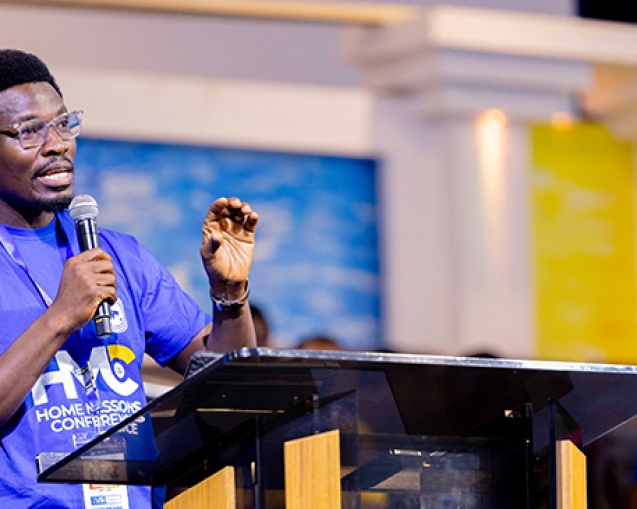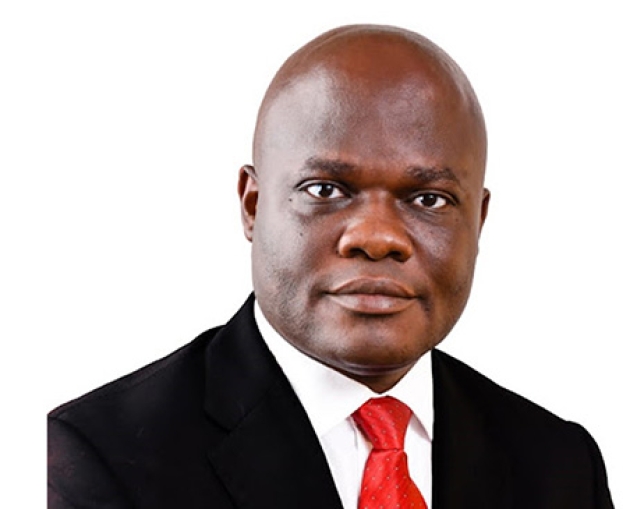To deny something is the firm refusal to accept and admit that you have knowledge and responsibility for something. It is divine to deny things you do not know as espoused by Christ. However, the outright refusal to admit knowledge of things one is privy to will be completely unacceptable even by the standards of this sinful world. A few hours before 3 pm on one late afternoon in April AD 33, the Lord Jesus Christ suffered a gargantuan denial by his bosom friend in the person of Apostle Simon Peter. Jesus went through a lot, especially the last 24 hours before His crucifixion. He was first deserted by everyone, including His disciples, after another Apostle of His betrayed Him to the Chief Priest and his men. Looking around, the only one who appeared to be monitoring how the event would turn out at a distance was Apostle Peter. “But Peter followed him at a distance, right up to the courtyard of the high priest. He entered and sat down with the guards to see the outcome.” (Matthew 26:58). Mercy is when your most trusted friend’s loyalty begins to oscillate under certain temperatures and pressure awaiting the outcome of an event before determining its final resting place. Which way was the pendulum of Apostle Peter’s loyalty going to finally rest by the fireside before the crucifixion of his bosom friend? This article aims to examine some of the predispositions and causes of denial and recommend ways of handling them in our Christian pilgrimage.
Apostle Simon Peter, who was called with his brother Andrew by Jesus, was one of His three closest apostles among the twelve He called. In my opinion, he was Jesus’ aide, spokesperson for the twelve, and Chief of Staff during Christ’s earthly ministry. There seemed to be a particular spiritual connectivity between him and Christ when he was spotted. When he was brought to Jesus by his brother Andrew, Jesus looked at him and said, “You are Simon, son of John. You will be called Cephas” (which, when translated, is Peter).” (John 1:42). From that day till some few hours before the crucifixion, Peter was the Apostle who, per the account of scripture, asked Christ more questions than any single one of them. He equally answered most of the questions Christ posed to them during His teaching services and wasn’t too bothered about getting those responses wrong. Peter was the only one among the twelve to gather the nerves to rebuke Jesus or openly disagree with Him on some issues. At one point, when Christ told them about His pending death, “Peter took him aside and began to rebuke him. “Never, Lord!” he said. “This shall never happen to you!” (Matthew 16:22). At this, Jesus turned to him and said, “Get behind me, Satan! You are a stumbling block to me; you do not have in mind the concerns of God but merely human concerns.” (Matthew 16:23).
Just before this counter rebuke by Christ, Peter was the only one amongst the twelve who got the revelation of the Messianic nature of Christ correct. Jesus replied, “Blessed are you, Simon son of Jonah, for this was not revealed to you by flesh and blood, but by my Father in heaven.” (Matthew 16:17). The occasional banter and free flow of expression with clear motives instead became a catalyst of the bond of love that was brewing between them. Unlike most human relationships characterized by antagonism and suspicions in the slightest disagreement, the love between Peter and Christ, I would say, increased with increasing divergent views on specific pertinent issues. Indeed, Peter was equally the only one who could gather the strength to ask Christ about their welfare and pension package for following Him. Not many employers or human resource managers can contain and entertain such sensitive discussions publicly. He asked his boss, Christ, “We have left everything to follow you! What then will there be for us?” (Matthew 19:27). The Lord’s reply to this question by Peter settled matters that were probably bothering and disturbing the minds of possibly many of the apostles who had become Christ’ followers.
Meanwhile, the time Peter brought this matter for discussion was after Jesus had aggressively rebuked him for trying to resist His death. Any other person would have coiled back into their shells for fear of further embarrassment for speaking up during their caucus meetings. Yet Christ’s response to their emoluments still resounds today in the ears and hearts of both the laity and those called into full-time ministry and even all workers in the Lord’s vineyard business. A special tribute must be paid to the late Apostle Simon Peter by all workers in the Lord’s vineyard business for asking for clarification on their staff welfare and retirement package. I think this is why many would never bother to put on red armbands to fight their human employers because the package, as elaborated by Jesus, was juicier and far beyond their expectations. To the twelve apostles, Jesus answered Peter, saying, “Truly I tell you, at the renewal of all things, when the Son of Man sits on his glorious throne, you who have followed me will also sit on twelve thrones, judging the twelve tribes of Israel. And for all other subsequent followers of Christ, including you and I, Jesus continued, “And everyone who has left houses or brothers or sisters or father or mother or wife or children or fields for my sake will receive a hundred times as much and will inherit eternal life.” (Matthew 19:28-29).
That could have also accounted for why Christ didn’t witness any upheavals or agitations by His followers regarding their retirement package. Indefatigable Peter was equally the one who stood up and assured the Lord when some followers started leaving Jesus that they (i.e., the twelve) had nowhere going, so He should relax. On the question of whether they were also going to leave Him, Peter said, “Lord, to whom shall we go? You have the words of eternal life. We have come to believe and to know that you are the Holy One of God.” (John 6:68-69). Let us, therefore, countenance divergent opinions at times, especially from those who may appear assertive within the household, marketplace, or church settings. They may not mean any malice, and like Peter, their usefulness usually outlives their generation.
Unfortunately, the storms of this life started blowing somewhat hard against this beautiful relationship between Jesus and Peter during the former’s last few days on Earth. A few hours before He was arrested, the Lord took the apostles to the Mount of Olives to pray for strength since He knew what would happen to Him and which would affect them. He selected Peter, James, and John, who could be best described as His inner core, and charged them to wait with Him in prayer after they moved a little farther away from the rest. He told them, “My soul is overwhelmed with sorrow to the point of death. Stay here and keep watch with me.” (Matthew 26:38). The Lord, at this point, expected at least all three of them, even if not His entire team to share in His pain and anguish. To request a trusted friend to keep watch with you is asking them to offer their uttermost attention, care, support, and concern in a difficult moment. At Gethsemane on the Mount of Olives, what Jesus required from the three was explicitly to support Him with prayers as He prayed.
However, when He watched their direction after an hour elapsed, He realized all three of them were asleep. Wow! One would have thought that two out of the three or even one, say Peter or His beloved John, would be there for Him. Yet, when He sought fellowship and inspiration from them, He had none. “Then he returned to his disciples and found them sleeping. “Couldn’t you men keep watch with me for one hour?” he asked Peter. (Matthew 26:40). For three consecutive times, the three could still get sleep for their eyes when their Master was crying in pain. Had they all plotted to show the Messiah a bitter lesson? Obviously No! They did not conspire against Jesus. “When he came back, he again found them sleeping because their eyes were heavy.”
One wonders how sleepy or heavy eyes became so infectious to all three simultaneously, even after Jesus’ intermittent reminders to them hourly. After the third time, Jesus asked them in verse 45, “Are you still sleeping and resting? In all of these, the Lord never took those unpardonable weaknesses they exhibited personal by severing their relationship with Him. The Christian walk is full of such occurrences and surprises from people we least expect to desert us in times when they are needed most. They may be genuinely tired or spiritually dozing off due to their strength levels against the challenges. Now, what probably broke the Camel’s back after He descended from Gethsemane was when all the disciples this time around deserted Him and fled for their lives. “Then all the disciples deserted him and fled.” (Matthew 26:56b).
The Lord, in all of this, did not cut ties with His disciples because He knew He would still need them in those crucial moments and more especially after His resurrection. People who desert us and our brand when we need them most must not be perceived as opponents because they would still be helpful after the mist has rolled away.
After His en-bloc desertion and monumental betrayal by Apostle Judas, the Lord underwent another painful denial; the world may not witness its kind until the end. It happened by the fireside, with the culprit being no other than His own Apostle Peter. Did all of this happen around the same time? Of course, yes! These were all unfolding within a matter of hours, if not minutes. The world was getting darker until noon when utter darkness covered the world for three hours. For three consecutive times running, Peter said he did not know who Jesus was when he was being interrogated. To clear all doubts about what he was saying, “He began to call down curses, and he swore to them, “I don’t know this man you’re talking about.” (Mark 12:71). Wow! This passes as the Greatest of all Time (G.O.A.T) Denial by a man born of a woman. And like the Monumental betrayal by Apostle Judas, this was also meted out to Christ for our sake.
At the time of this record-breaking denial, Jesus knew Peter was the one He would entrust the flock to His care after resurrecting and before ascending to His Father’s Kingdom. What would have been your reaction if you were Christ and, just after the news of your resurrection, you saw Peter also running towards your tomb to verify things for himself? For some, that would have been the end of their relationship. Others would have confronted and embarrassed him with name callings such as “hypocrite, liar, a snake under grass, greedy bastard, wicked Apostle, etc. Jesus, however, confronted Peter’s gargantuan denial with an immeasurable amount of Love at their next meeting. No wonder Peter had no option but to offer his best for Christ when he got the needed implements after the outpouring of the Holy Spirit.
It is worth noting that whereas John the Baptist literally denied his successor by the question he sent his disciples to ask Jesus, Peter also denied his predecessor. The former did it out of offense with a question, and the latter with an answer out of fear. (Luke 7:22). Jesus, therefore, became a victim of hurtful denials by the one who introduced him to public ministry and the other who bid Him farewell before His ascension to Heaven. In all this, He kept His focus and brought His task to a victorious and glorious end. Believers must understand the bitter truth that all manner of denials and betrayals from unsuspecting personalities aren’t unusual in our pilgrimage. Here again, it should not be taken too personal because the reason for the denial may be borne out of fear and not malice or wickedness. (Matthew 26:75).
Those who desert, betray, and deny their comrades when needed most are those who lack spiritual strength or have energies already used up. When the Lord called the disciples for a prayer session at Gethsemane, they went and dozed off. Knowing what lay ahead of Peter, He warned him on the mountain before they descended to watch and pray; otherwise, he entered into temptation. No wonder Peter’s abysmal performance before little girls when the going was getting tough. He was even lucky that the Lord had already prayed for his preservation since Satan wanted to sift him as wheat. (Luke 22:31-32). Let us keep a quality devotional life as Christians to keep us from deserting, disappointing, betraying, and denying fellow believers who desperately rely on us in their dark moments of pain and trials.
From the above, it would be realized that the only tried and tested antidote to denial and its effects is the expression of God’s Love. It neutralizes the venom responsible for breaking apart relationships and binds the parties together. The Apostle who swore before Little Girls to have nothing to do with Christ was the same person who proclaimed before Men that he would rather obey God than them. (Acts 5:29). Stay blessed.
Written by Pastor James Agyin


















